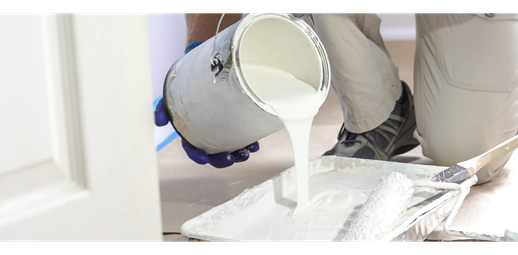
If you’re planning on renovating your home, you may be wondering if you need to tell your insurer. The answer is – most of the time, yes. Though it depends on the type of work you’re having done, and the requirements of your insurer.
In this article, we’ll break down the types of renovation that might affect your home insurance, and when and how to tell your insurer.
EASY AS HACK
Considering a renovation project? Look up houses down your street on RightMove to see how other people have improved similar spaces.
At a glance
- You need to tell your insurer about any renovations that could change the structure or value of your home.
- Moving out while works are being done? Make sure to let your insurer know.
- Adding a bedroom or a bathroom can change your home’s rateable value, so it’s essential you tell your insurer.
What types of home renovation might affect my insurance?
You need to tell your insurer about any renovations that could change the structure or value of your home, as some home improvements could affect the type of home insurance policy that best suits your property. If the property is damaged because of building work, your insurance may not cover this.
Here are some examples of home renovations that might affect your insurance:
Structural renovations
You’ll need to tell your insurer about any DIY work that changes the foundation, framing, or roof of your home. This includes, adding an extension, converting a garage into living space, adding a bedroom or raising the roof.
Major cosmetic renovations
A major cosmetic renovation is any work that significantly changes the appearance of your home. This could be painting the exterior walls, replacing the windows, or adding a new deck. All of these things can create extra risk, for example, leaving your property open to weather damage.
Renovations that increase the value of your home
Work that could make your home more valuable, such as adding a new bathroom or bedroom, will change the cost of covering your home in the event of damage. It’s important to tell your insurer about any renovations you hope will add value to your home.
Don’t miss: Home improvements that add the most value to your home
Most home insurance policies exclude accidental damage as a result of buildings alterations, renovations, extensions or repairs. But it’s best to check your policy details, as there are some renovations you need to take more care with, such as below:
Rewiring
If you're having your electrical system rewired, you need to tell your insurer, as rewiring can increase the risk of fire.
Replumbing
Replumbing can increase the risk of water damage in the short term.
Having cladding replaced
If you're having cladding replaced, you need to tell your insurer so they can reassess the risks for your home. This is because cladding can help to protect your home from weather damage.
Read this: How to prevent common weather damage to your home
When don’t I need to tell my insurer about home renovations?
There are a few cases where you may not need to tell your insurer about a renovation. These include:
Cosmetic renovations
If you're just making cosmetic changes to your home, such as painting the walls or replacing the flooring, you typically don’t need to tell your insurer. However, it's always best to check with them first to be sure.
Minor repairs
If you're making minor repairs to your home, such as fixing a leaky tap or replacing a broken window, you may not need to tell your insurer. However, if the repair is extensive or could affect the structure of your home, it’s best to give them a call.
When should I tell my insurer I’m renovating?
It’s important to tell your insurer about any renovations before you actually start work.
If you need to move out of your home while home renovations are being done, you may need to ask your insurer about unoccupied insurance. If you’re leaving the property for an extended period, your policy may have further cover restrictions or you may need to arrange alternative cover.
By telling your insurer about your renovations, you can help to ensure that you're properly covered in case something happens.
How to tell your insurer about home renovations
The best way to tell your insurer about home renovations is to contact them directly, or through your broker. They’ll likely ask you some questions about the renovation, such as the type of work you’re having done, the estimated cost, and when it will be completed. They may also ask for evidence that any contractors you use have the right licenses and insurance to carry out the job. Your insurer will also check that no Joint Contracts Tribunal (JCT) contract has been entered into, as this means the insurer would have no recourse against the contractor in the event of a claim being made.
If you’re an Ageas’ customer, we have a series of questions our team will take you through, including who’s carrying out the work, what is being done and whether the property will be left unoccupied. We’ll typically then be able to tell you immediately how your policy will be affected. Easy.
Learn more: What affects the cost of your home insurance?
What happens if I don’t tell my insurer about my home renovation?
It's important to remember that your insurer is there to protect you in case something happens to your home. If you don't tell them about your renovations, you could be putting yourself and your home at risk.
If you don't tell your insurer about your home renovations, there are a few things that could happen:
- Your claim could be denied. If you file a claim for damage to your home that was caused by a renovation you didn't tell your insurer about, they may deny your claim.
- Your policy could be declared void. If you don't tell your insurer about renovations, they may declare your policy void from its start date or the date that building work started. This means that you won't be covered by insurance if something happens to your home.

GET A QUICK QUOTE
Shopping for home insurance that makes protecting your home Easy As? Ageas Home Insurance is Defaqto 5 Star rated.


